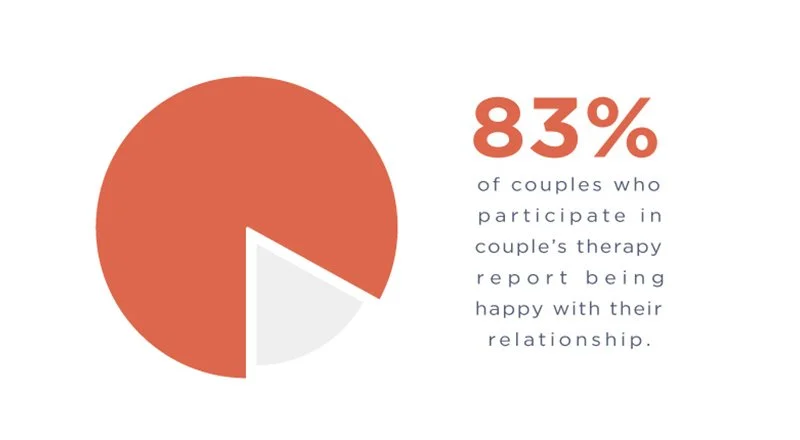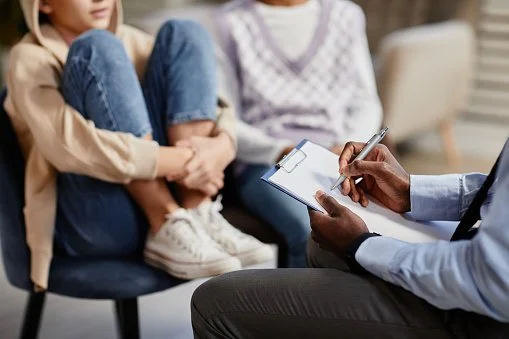A Guide to Couples Therapy: What to Expect and How it Can Help Your Relationship
Couples therapy, also known as marriage counseling or couples counseling, is a type of therapy that is designed to help couples improve their relationship. The goal of couples therapy is to help couples work through problems, improve communication, and strengthen their bond. In this blog post, we will explore the benefits of couples therapy and what to expect during therapy sessions.
Benefits of Couples Therapy
One of the most significant benefits of couples therapy is improved communication. Communication problems are one of the most common issues that couples face. Through therapy, couples can learn how to communicate more effectively with each other, including active listening, expressing emotions, and resolving conflicts in a healthy way.
Couples therapy can also help increase intimacy in the relationship. Intimacy can mean many things, from physical intimacy to emotional closeness. Therapy can help couples learn how to connect more deeply with each other, share their thoughts and feelings, and show affection.
Resolving conflicts in a healthy way is another significant benefit of couples therapy. Conflicts are inevitable in any relationship, but the way that couples handle conflicts can make a significant difference in the success of their relationship. Couples therapy can teach couples how to navigate disagreements without resorting to hurtful words or actions.
Gaining insight into relationship dynamics is another benefit of couples therapy. Often, couples may not be aware of patterns or dynamics that are contributing to their problems. Through therapy, couples can gain a better understanding of how their relationship works, including the underlying issues that may be contributing to their problems.
Couples therapy can also help partners learn how to manage stressors and transitions together. Life can be stressful, and significant transitions such as moving, having a baby, or changing jobs can be challenging for couples. Through therapy, couples can learn how to support each other through difficult times and manage stressors together.
Finally, couples therapy can help strengthen the bond between partners. By learning how to communicate more effectively, resolving conflicts in a healthy way, and increasing intimacy, couples can develop stronger and more fulfilling relationships.
A “happiness index” study conducted annually by the popular dating service Eharmony, which surveyed 3,000 Americans about the factors that increase relationship satisfaction.
Common Issues Addressed in Couples Therapy
While couples therapy can be helpful for many different types of issues, some issues are more common than others. Here are some of the most common issues that couples seek therapy for:
Communication problems: Communication is essential in any relationship, and communication problems can lead to misunderstandings, hurt feelings, and conflict.
Infidelity: Infidelity can be a significant breach of trust in a relationship. Couples therapy can help partners work through their feelings and rebuild trust.
Financial stress: Money is a common source of stress in many relationships. Couples therapy can help partners learn how to manage their finances together and reduce financial stress.
Parenting disagreements: Parenting is a significant responsibility, and disagreements about parenting can create tension in a relationship. Couples therapy can help parents learn how to work together and find common ground.
Sexual problems: Sexual issues such as mismatched libidos, performance anxiety, or sexual trauma can cause significant strain on a relationship. Couples therapy can help partners explore these issues and work towards solutions.
Differences in values or goals: When partners have different values or goals, it can be challenging to find common ground. Couples therapy can help partners learn how to understand and respect each other's differences.
Cultural differences: Couples from different cultural backgrounds may face unique challenges in their relationship. Couples therapy can help partners navigate these differences and find ways to appreciate and celebrate their cultural heritage.
Mental health issues: Mental health issues such as depression or anxiety can impact a relationship. Couples therapy can help partners learn how to support each other through these challenges.
What to Expect in Couples Therapy
If you are considering couples therapy, you may be wondering what to expect. Here are some of the things that you can expect during couples therapy:
Initial assessment: Your therapist will begin by getting to know you and your partner, and assessing the issues that you are facing in your relationship. This may involve filling out questionnaires or discussing your relationship history and current concerns.
Goal setting: Your therapist will work with you and your partner to establish clear goals for therapy. This may involve identifying specific issues that you want to work on or setting broader goals such as improving communication or increasing intimacy.
Sessions: Couples therapy sessions typically last between 50 and 90 minutes and occur on a weekly or bi-weekly basis. During sessions, you and your partner will work with your therapist to explore your relationship dynamics, practice new communication skills, and work towards your goals.
Homework: Your therapist may assign homework to be completed between sessions. This may involve practicing new communication skills, reflecting on your relationship, or working on specific exercises to improve intimacy.
Duration: The length of couples therapy can vary depending on the issues you are facing and the progress that you make. Some couples may see significant improvement in just a few sessions, while others may continue therapy for several months or more.
Finding a Couples Therapist
Finding the right couples therapist is essential for a successful therapy experience. Here are some tips for finding a therapist that is a good fit for you and your partner:
Look for a licensed therapist: Look for a therapist who is licensed to provide therapy in your state or country. This ensures that they have met the necessary education and training requirements to provide therapy.
Specialization in couples therapy: Look for a therapist who specializes in couples therapy. This means that they have specific training and experience working with couples.
Personal fit: It's essential to find a therapist that you and your partner feel comfortable working. Consider factors such as their communication style, personality, and approach to therapy.
Accessibility: Consider factors such as location, availability, and cost when choosing a therapist. Make sure that the therapist you choose is accessible and meets your practical needs.
Couples therapy can be a valuable tool for improving your relationship. By addressing communication problems, increasing intimacy, and resolving conflicts in a healthy way, couples can develop stronger and more fulfilling relationships. If you are considering couples therapy, it's important to find a therapist who is a good fit for you and your partner. With the right therapist, couples therapy can be an effective way to improve your relationship and build a happier and healthier future together.
Yours truly,
Michelle & Co


